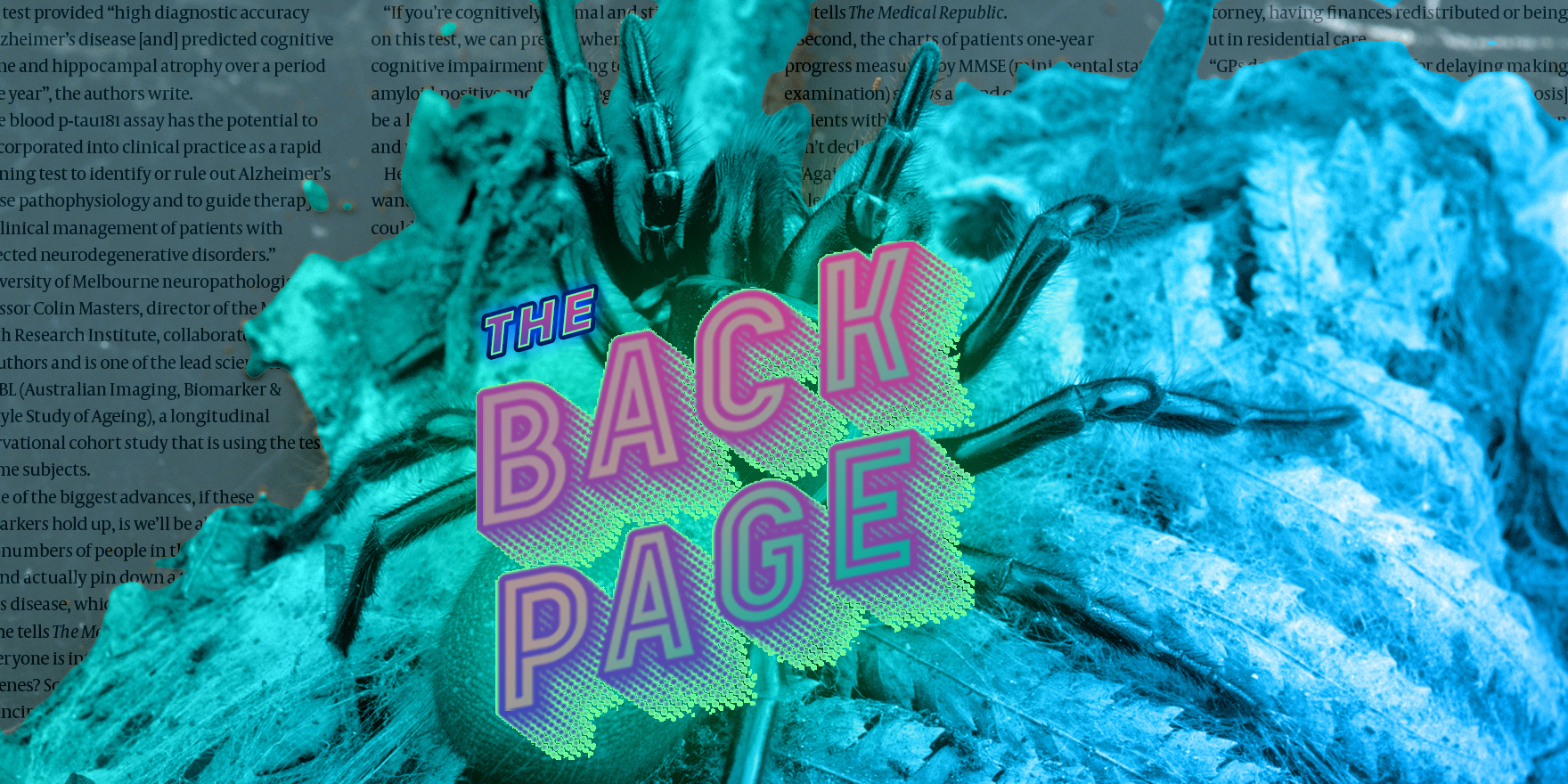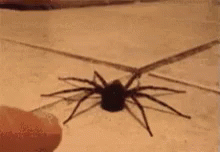Their venom only kills humans as a side effect. Great.
Show me a funnelweb spider and I’ll show you a grown man standing quivering on a chair struggling to maintain continence.
As citizens of Sydney and surrounds will assure folks who don’t share a domicile with these arachnids from hell, funnelwebs don’t just LOOK terrifying, they ARE terrifying.
Should an Atrax robustus sink its awesome fangs into an unsuspecting nether digit, you can rest assured it is gonna hurt. A lot. So much hurt that you might wish you were dead. Which you might end up being, because that venom injection can be a killer if you don’t have a vial of antivenin handy.
But that’s not the spider’s fault, a team of academics from USC and the University of Queensland tell us.
No, that death-style reaction is merely an unfortunate side-effect of the spider’s strong self-defence system, the boffins report in a study published this week in Proceedings of the National Academy of Sciences of the United States of America.
Lead author Associate Professor Volker Herzig of USC said the researchers found that toxins in the funnelweb’s venom had evolved to cause pain as a defence against non-human predators, even though “a high dose can cause death in humans”.
“The funnelweb venom is incredibly complex and contains more than 3,000 different peptides, but we were just interested in the delta hexatoxins (the highly lethal class of toxins) of which there are only a few representatives in each venom,” Dr Herzig said in a media release.
“Originally the delta hexatoxin evolved to kill insects but over time it was modified as a protective mechanism, particularly in the males that leave their burrows for longer periods to find a mate and thereby are more likely to encounter predators.”
Sounds like a version of the old “they’re more afraid of you than you are of them” claptrap.
The funnelweb’s lethal toxin apparently binds to the membrane proteins responsible for sending electrical signals through the body. The boffins suspect these sodium channels in humans must share similarities with the channels in the natural predators of the funnelweb spiders, such as lizards, birds and wasps.
“So, it’s really only an unfortunate coincidence that humans are also affected by this toxin from funnelweb spiders,” Dr Herzig said. “It has always been a mystery for us why funnelweb spiders can cause human fatalities, as humans do not feature in their prey spectrum.”
This information, while intriguing, gives me NO COMFORT WHATSOEVER.
If you see something stupid, say something stupid … send bandages, splints and antivenom to felicity@medicalrepublic.com.au.



